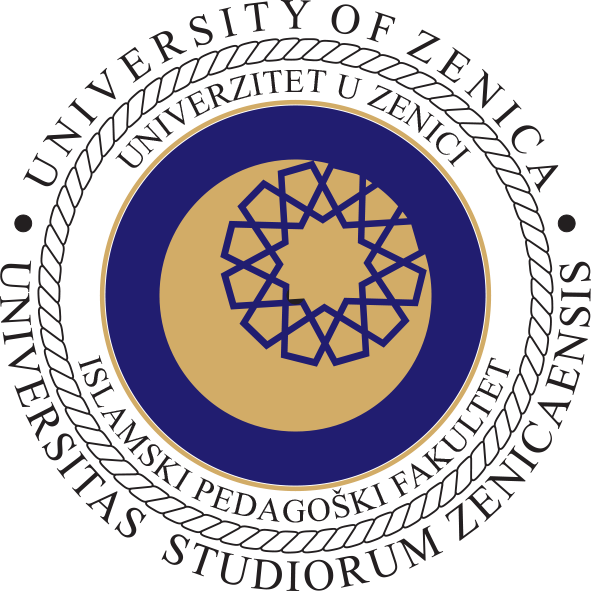ISLAMIC TRADITION OF BOSNIAKS AS AN EXAMPLE OF INTERRELIGIOUS TOLERANCE AND COEXISTENCE
Ever since the advent of Islam in these areas Bosniak Muslims have been members of the main stream of Islam (ar. Ehlu-s-sunne ve-l-jama, bos. Ehli-sunna) and when it comes to religious partial fiikh (ritual) matters they have followed one of the oldest mezhep (law schools) that originated in Islam, the hanefi mezhep. Thus, for almost six centuries,...
By Safvet Halilović
ERRORS IN THE SPEECH OF PRESCHOOL CHILDREN- THE ROLE OF AN EDUCATOR
The aim of this paper was to investigate the types of errors occurring in the speech of children before starting school, and in that regard to highlight the educators’ role in stimulating the proper speech development of children in a preschool institution. The study included sixty children from the older kindergarten group at the Public Institutio...
By Aida Teljigović, Amina Pehlić
THE PRONOUNCED (LITERAL) MEANING OF THE LEGISLATIVE TEXT (AL-MANṬŪQ) IN SHAFII SCHOOL OF LAW
This paper explores the theoretical interpretations of the pronounced meaning of the legislative text (al-manṭūq) in the Shafii school of law and the consequences of such an interpretation for the rules that the Shafiis came to through their legal reasoning (ijtihād). At the beginning of the work, the discipline of linguistics is explained in the c...
By Šukrija Ramić
A CATHOLIC VIEW OF INTERRELIGIOUS DIALOGUE IN THE TIME OF POPE FRANCIS
The Second Vatican Council (1962-1965) drew the attention of Catholics to human dignity of non-Christian believers who have right to their religious identity. After the Council Popes Paul VI, John Paul II and Benedict XVI established and supported the Pontifical Council for Interreligious dialogue with the task to study other religions as they perc...
By Mato Zovkić
NEOLOGISMS IN CHILDREN’S SPEECH
Abstract The paper presents a case study – speech "errors", neologisms were recorded during the longitudinal monitoring of a child's speech, i.e. regular speech and language development from the third to the sixth year of life. The previously published work using the material collected during the same longitudinal monitoring analyzed "errors" in th...
By Amina Pehlić
QIRA'ATS AND REGULATIONS ON HAJJ
The Qur'an is the primary source of Islamic law. General and special sharia norms are derived from its text. This aspect of the Qur'an has been the subject of interest of numerous Islamic scholars in the context of interpreting the normative ayahs - ajatu'l-ahkam. The Hajj is one of the five pillars of Islam. It is prescribed by the Qur'an and the ...
THE QUALITY OF THE DEVELOPMENT OF ECOLOGICAL AWARENESS THROUGH ISLAMIC EDUCATION AT SCHOOLS
The aim of this paper was to examine the quality of the development of ecological awareness through Islamic Education at schools, i.e. based on Islamic Education teachers' stances to determine the extent to which ecology-related content in elementary school textbooks stimulates the development of students' ecological awareness, and to examine the t...
By Nermin Tufekčić
UNDERSTANDING THE BASIC TERMINOLOGY OF TAJWEED
The practice of accurate pronunciation of the Qur'anic harf, lengths, idgams, etc., is certainly a matter of skill in tilavet, and there is no skill without systematic work and practice. The practical, sound-related aspect of reciting the Qur'an is only one segment of Tajweed, i.e. its artistic dimension. However, when we say 'ilm et-tajweed', we r...
By DŽevad Šošić
CORPUS-BASED STUDY OF THE MODAL VERBS IN THE SPOKEN AND ACADEMIC GENRES OF THE CORPUS OF CONTEMPORARY AMERICAN ENGLISH
This corpus-based study focuses on the nine English central modal verbs (can, could, will, would, may, might, shall, should, and must) across the two chosen genres of the COCA corpus – Spoken and Academic genres, which show the greatest number of differences in terms of genre characteristics, such as formality or intended audience. Because research...
By Edina Rizvić-Eminović, Đelaludina Šukalić
ARABIC IN INTERLANGUAGE CONTACTS
Contacts between speakers of different languages are a common occurrence, although depending on the efficiency of means of transport and communication they have been of varying intensity throughout history. The nature of the consequences of such contacts can be positive and negative for the languages, while the superior or inferior status of langua...
By Amrudin Hajrić



